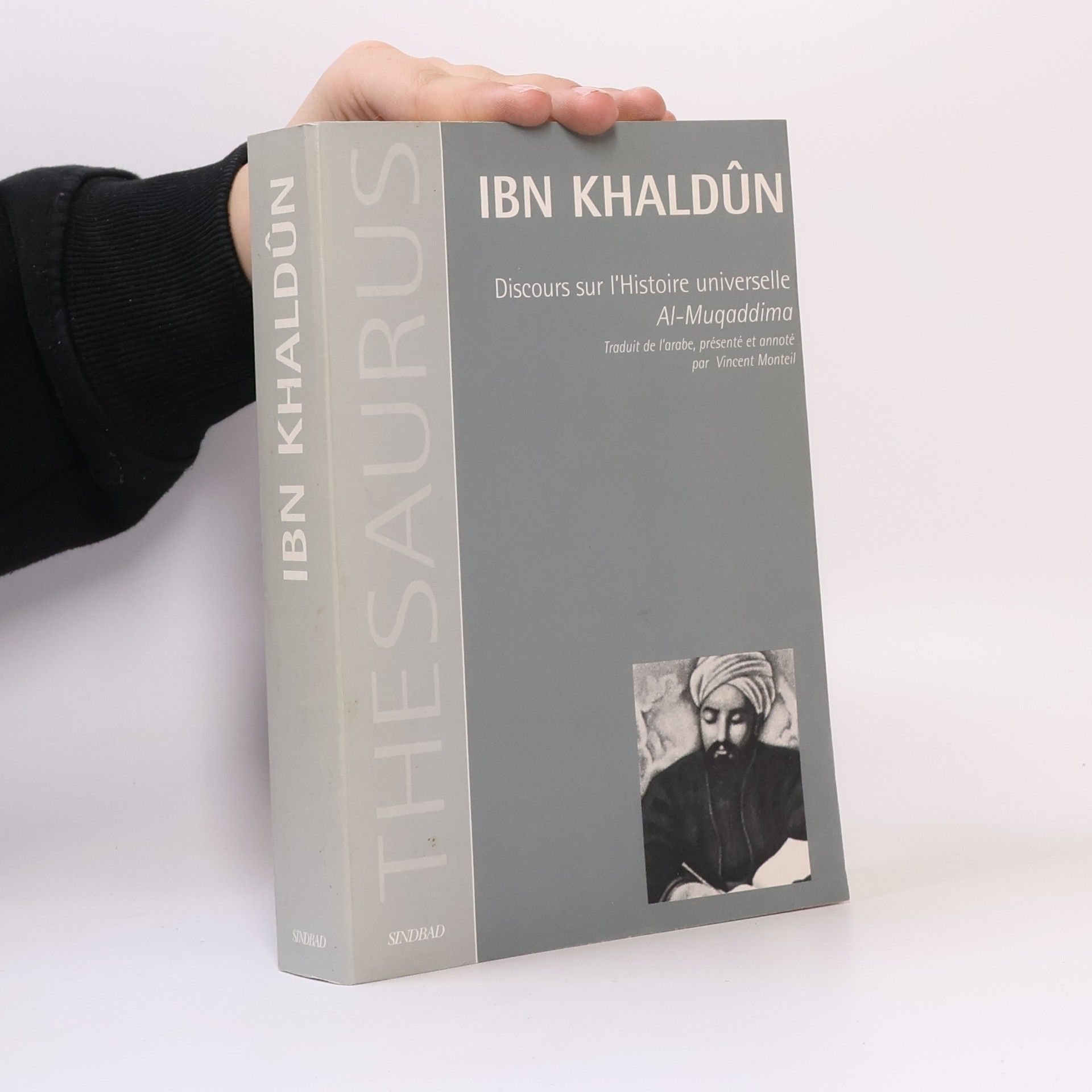Ibn Khaldun Livres
Ibn Khaldūn est considéré comme l'un des pères fondateurs de l'historiographie, de la sociologie et de l'économie modernes. Son œuvre majeure explore l'ascension et le déclin cycliques des civilisations, offrant des aperçus profonds sur la dynamique de la société. Son approche analytique et ses théories sur la cohésion sociale et le comportement de groupe ont considérablement façonné notre compréhension des communautés humaines. L'influence durable des théories d'Ibn Khaldūn continue de résonner auprès des universitaires de diverses disciplines aujourd'hui.






Ibn Khaldun's monumental work from the fourteenth century serves as a foundational text in various fields such as history, sociology, ethnography, and economics. It offers profound insights into the dynamics of civilization and the factors influencing societal development, making it a crucial resource for understanding the premodern Islamic world. The Muqaddimah's analytical approach and innovative concepts have left a lasting impact on multiple disciplines, highlighting Khaldun's significance as a pioneering thinker.
Ibn Khaldun: Political Thought
- 286pages
- 11 heures de lecture
The political writings of a fourteenth-century philosopher offer profound insights into society and governance in the pre-modern Arab world. This volume highlights Ibn Khaldun's enduring relevance, examining his theories and their applicability to contemporary issues. Through a detailed exploration of his ideas, the book invites readers to reflect on the nature of politics and social dynamics, bridging historical thought with modern contexts.
Ibn Khaldun's monumental work, written in the fourteenth century, is a foundational text in various fields, including history, sociology, ethnography, and economics. It provides a comprehensive analysis of the rise and fall of civilizations, emphasizing the importance of social cohesion and economic factors in historical development. This influential text not only serves as an introduction to Islamic history but also lays the groundwork for modern social sciences, making it a crucial resource for understanding historical and cultural dynamics.
The Muqaddimah (المقدمة), often translated as "Introduction" or "Prolegomenon," is the most important Islamic history of the premodern world. Written by the great fourteenth-century Arab scholar Ibn Khaldun (d. 1406), this monumental work established the foundations of several fields of knowledge, including the philosophy of history, sociology, ethnography, and economics. The first complete English translation, by the eminent Islamicist and interpreter of Arabic literature Franz Rosenthal, was published in three volumes in 1958 as part of the Bollingen Series and received immediate acclaim in the United States and abroad.
"This work is essentially a legal opinion, a fatwa, asserting the inherent validity of the Sufi path"-- Provided by publisher
19x12. 192 pgs. Firma y sello de biblioteca en la portada. Puntos de óxido en cubiertas.
